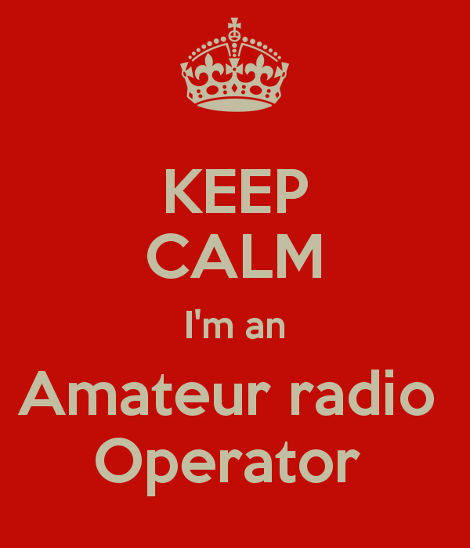
"Let's pray to God that we don't have an emergency."
That from Bruce Lenton, Algoma Amateur Radio Club (AARC) educational director, speaking to SooToday.
However, if there is ever an emergency (natural or man-made) which disrupts our lives, Lenton wants the public to know that fully licensed amateur radio operators, commonly known as ham radio operators, will be there to assist.
Amateur radio operators have been known to save lives.
Long before social media, amateur radio dates back to the early days of radio.
Amateur radio operators worldwide are trained and officially licensed by governmental authorities and given radio frequencies for useful communication purposes.
"Basically we're interested in communicating all around the world," Lenton said.
"Most of the time radio amateurs are contacting each other just for the joy of doing it, but at the same time the government gave us frequencies so that in the event of an emergency we can help our communities."
"If the cell phones go in a power failure our systems will still work, so we want to train enough people so that in the event of an emergency there are radios available which can relay information to the authorities or get people in touch with each other in a disaster situation," Lenton said.
"One of the things we're trying to do now is to get municipal workers, for instance, to have these radios because when the power fails in a big fire or whatever, all of the emergency services talk to a dispatcher but they don't talk (directly) to each other."
"Their dispatcher may be in Toronto and they will route the signal back to Sault Ste. Marie, but what we can do in a disaster situation is provide them communication so they can all talk to each other, so that the fire department can talk to the PUC for example, it would be faster and better for them," Lenton said.
"Amateur radio would allow municipal workers to communicate with each other, and with our equipment we could also contact peoples' friends and relatives in southern Ontario to see if they're okay."
Lenton said AARC is working to get a transmission tower erected for city workers at the Emergency Preparedness building at 65 Old Garden River Road.
"A disaster I would be most concerned about in Sault Ste. Marie is an ice storm that would take our power down…when it happened in Montreal (in 1998) they were down for a couple of weeks and people were burning their furniture to stay warm," Lenton said.
In the event of an emergency (such as an ice storm) which knocks out electricity, leaving the population without information and emergency instructions from internet, television and radio sources, and which also knocks out the ability to communicate by land line or cell phone, the public would still be able to be advised (by listening to emergency instructions from radio stations on battery-operated radios) to go to certain locations in the city if they need police, fire or ambulance services.
The public would be able to go to those locations (hopefully with their own vehicle or with the help of a neighbour), where Algoma Amateur Radio Club operators would be available to pass on requests for help or public safety information to the appropriate emergency services.
Be sure to own a battery-operated radio, Lenton said.
AARC operators would be available to help at the Sault Ste. Marie Police Services building at 580 Second Line East and at Sault Fire Services stations at 72 Tancred Street, 363 Second Line West, 100 Bennett Boulevard and 65 Old Garden River Road.
AARC operators would also be available to help the public at local Mac’s convenience store parking lots across the city to pass along information and receive requests for help from the public in matters of public safety.
Those operators would be clearly seen with signs on their vehicles reading '911 Reporting'.
Lenton was stationed at the Mac's near the corner of Trunk Road and Boundary Road during the August 2003 blackout that hit the Sault.
Lenton has been an amateur radio operator for the past two decades and is also an instructor with the Algoma Amateur Radio Club.
11 students, taught by Lenton, have recently passed Industry Canada's test for Basic Radio Qualifications and have been licensed as Radio Amateurs.
"We handed out certificates and everyone was happy and we had a Christmas party last week," Lenton said.
The AARC has 30 members.
Those interested in becoming an amateur radio operator may contact Lenton by email at [email protected]
To get started, one must pick up a registration form and manual for $30 at Sonic Northern Electronics at 36 Queen Street East.
As soon as 10 people are interested, amateur radio classes are held at Great Lakes Honda from 7 p.m. to 9 p.m., Tuesday and Thursday, for seven weeks.
Students must then pass the Industry Canada amateur radio test before receiving a certificate to go on air.
Some ham radio operators build their own equipment, but most purchase their equipment at Radioworld in Toronto.
Students will be given all the guidance they need, Lenton said.
There is no fee for taking the amateur radio course.
The only expense involved is the purchase of the manual.
Another interesting item of note is that there is no minimum age requirement to be a ham radio operator.
"If they can walk and talk, they can take the test," Lenton chuckled.
More information can be found at the Algoma Amateur Radio Club website